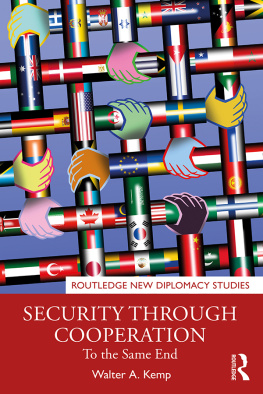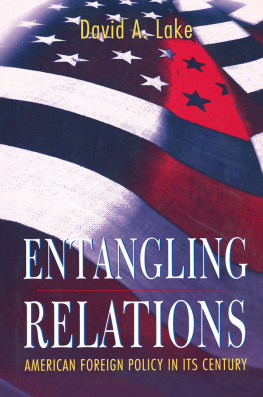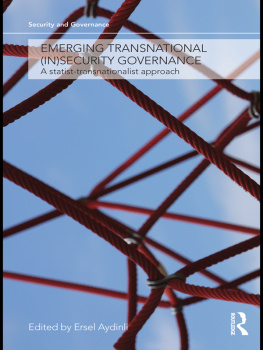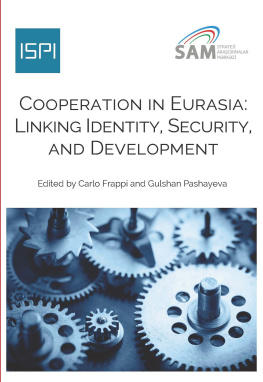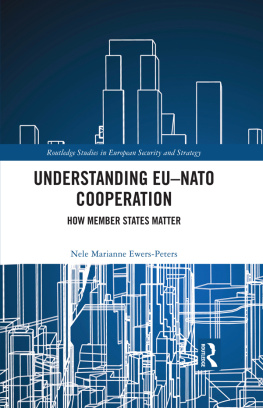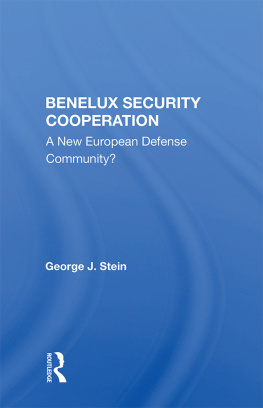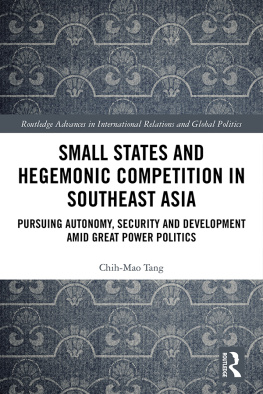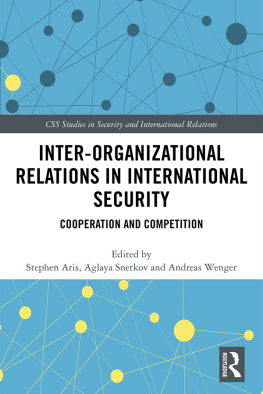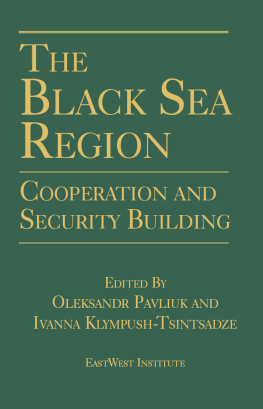In the wake of the Cold War international cooperation was announced to be the future of international politics, now many ask themselves, does international cooperation have a future? If you look for a hopeful answer to this question, read this clear-sighted and well-argued book.
Ivan Krastev, Centre for Liberal Strategies, Sofia, Bulgaria
International cooperation is often measured by simply our ability to avoid resorting to the use of bombs and bullets. But as this book powerfully demonstrates, the complex labyrinth of transnational issues we now confront means our security depends on a new era of diplomatic cooperation not simply for the sake of cooperation, but because this is what our individual national interests and the planet now demand.
Kevin Rudd, former Prime Minister of Australia
The author sets out a planet in peril, staggering under the burden of a new threat set comprised of unconventional security challenges, ranging from climate change to pandemic disease, from cyber-crime to management of the global commons. In the face of this complex constellation of wicked, transnational issues, Kemp makes a highly compelling case for diplomacy and is convinced that a combination of negotiation, dialogue, science and understanding must displace coercion and the application of armed force as the international policy instrument of choice.
Daryl Copeland, author of Guerrilla Diplomacy
Security through Cooperation
This book makes the case for why cooperation is the key to security within and between states, and for dealing with complex threats and challenges to international peace and security.
It argues that cooperation is not altruism or liberal internationalism, rather it is in the self-interest of states. Drawing on both theory and practice, it looks at how cooperation can be promoted within and between states as well as in the global community. It explains the concept of cooperative security and its potential contribution to promoting integration against the current of fragmentation. Furthermore, the book explores the potential impact of technology on cooperation. It makes an urgent call for new ideas and approaches to encourage people and states to work together to deal with complex threats and challenges.
This book will be of particular interest to students of diplomacy studies, foreign policy and international relations, and to practitioners dealing with security issues.
Walter A. Kemp is Senior Fellow at the Global Initiative against Transnational Organized Crime, and Strategic Policy Adviser at the Geneva Centre for Security Policy. He teaches at the Diplomatic Academy in Vienna, Austria.
ROUTLEDGE NEW DIPLOMACY STUDIES
Series Editors: Corneliu Bjola, University of Oxford, and Markus Kornprobst, Diplomatic Academy of Vienna
This series publishes theoretically challenging and empirically authoritative studies of the traditions, functions, paradigms and institutions of modern diplomacy. Taking a comparative approach, the New Diplomacy Studies series aims to advance research on international diplomacy, publishing innovative accounts of how old and new diplomats help steer international conduct between anarchy and hegemony, handle demands for international stability vs international justice, facilitate transitions between international orders, and address global governance challenges. Dedicated to the exchange of different scholarly perspectives, the series aims to be a forum for inter-paradigm and inter-disciplinary debates, and an opportunity for dialogue between scholars and practitioners.
Diplomacy and Borderlands
African Agency at the Intersections of Orders
Edited by Katharina P. Coleman, Markus Kornprobst, and Annette Seegers
Diplomacy and Ideology
From the French Revolution to the Digital Age
Alexander Stagnell
Digital Diplomacy and International Organisations
Autonomy, Legitimacy and Contestation
Edited by Corneliu Bjola and Ruben Zaiotti
Diplomacy, Communication, and Peace
Selected Essays
William Maley
Security through Cooperation
To the Same End
Walter A. Kemp
For more information about this series, please visit: https://www.routledge.com/Routledge-New-Diplomacy-Studies/book-series/RNDS
Cover image: Ray Bartkus
First published 2022
by Routledge
4 Park Square, Milton Park, Abingdon, Oxon OX14 4RN
and by Routledge
605 Third Avenue, New York, NY 10158
Routledge is an imprint of the Taylor & Francis Group, an informa business
2022 Walter A. Kemp
The right of Walter A. Kemp to be identified as author of this work has been asserted in accordance with sections 77 and 78 of the Copyright, Designs and Patents Act 1988.
All rights reserved. No part of this book may be reprinted or reproduced or utilised in any form or by any electronic, mechanical, or other means, now known or hereafter invented, including photocopying and recording, or in any information storage or retrieval system, without permission in writing from the publishers.
Trademark notice: Product or corporate names may be trademarks or registered trademarks, and are used only for identification and explanation without intent to infringe.
British Library Cataloguing-in-Publication Data
A catalogue record for this book is available from the British Library
Library of Congress Cataloging-in-Publication Data
A catalog record has been requested for this book
ISBN: 978-1-032-10217-7 (hbk)
ISBN: 978-1-032-10218-4 (pbk)
ISBN: 978-1-003-21426-7 (ebk)
DOI: 10.4324/9781003214267
Tell them to turn down the music or Ill call the police!
My wife was upset. We had just built a new house. On the property next door was a family with teenage children who liked to play music late into the night. It was hot. We had a small child who was trying to sleep. I went next door, asked politely if they could turn down their music. They did. But the next night the music was blaring again. In the morning, there were several smashed eggs on their house. It wasnt me (or my wife). But after that, the evenings were quieter.
Except one Saturday. It was still light and sunny around eight in the evening, so I decided to mow the lawn. In Canada, where I am from, you can mow your lawn at pretty much any reasonable time. Well, it turns out the rules are different in the small village in Austria where we live. A neighbor came darting out of his house, waving at me. I turned off the motor. Excuse me, neighbor, he said. It doesnt bother me, but others might be annoyed by you mowing your lawn after hours. After hours?, I asked, genuinely confused. Yes, you can mow your lawn only between seven in the morning and seven at night, and only until five on a Saturday. I must have looked unconvinced, because a few minutes later he ran over with a piece of paper in his hand from the city council with a list of the approved times for mowing the lawn. Okay, I got it, I said and have followed the rules ever since.
The moral of the story? You cant choose your neighbors, but you have to find a way to live with them.
This book is about good-neighborly relations and cooperation within and between states. It looks at how cooperation can improve security: globally, regionally, bilaterally, and within states. By security, what I mean in broad terms is freedom from want, fear, and feeling insecure against possible attacks or threats and challenges to survival. As will be discussed in this book, this definition applies to people as much as states. Furthermore, dangers to security are no longer predominantly related to military security and relations between states, but now encompass a much broader range of issues including the environment, health, and transnational threats. Therefore, the way to deal with these threats and challenges must also evolve, including through more cooperative approaches. This is the central argument of this book.

